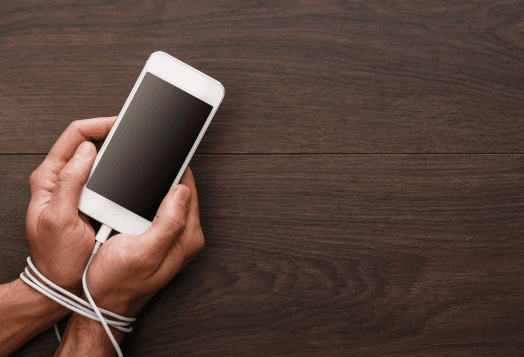
If you've clicked on this article, chances are you're feeling lonely right now..
Loneliness is a universal human experience that touches everyone at some point. In our hyper-connected world, it might seem ironic that so many of us struggle with emotional isolation, but here we are.
The good news? You have the power to change how you feel, and taking that first step shows incredible strength.
What’s Loneliness & How It Affects Us?
Feeling lonely isn't just about being physically alone - it's that deeper sense of disconnection that can hit you even in a crowded room. Dr. John Cacioppo, a leading researcher on loneliness, described it as ‘the subjective experience of isolation.’
In simple words, being alone and feeling lonely are two completely different experiences. Being alone is simply a physical state - you're by yourself. Many people actually enjoy their alone time for self-reflection, creativity, or just recharging their batteries.
Feeling lonely, on the other hand, is an emotional state. You can feel lonely at a party surrounded by people, or you can feel perfectly content spending a quiet evening by yourself.
Research shows that loneliness affects mental health in significant ways, much like the impact of gynophobia on emotional well-being. Many studies conclude that chronic loneliness can increase stress hormones and inflammation in the body.
But recognising you're lonely is actually the first step toward overcoming loneliness.
12 Things to Do to Combat Loneliness
Ready to take action? Here are proven ways to help you feel more connected and supported:
1. Reach Out to Someone

Sometimes the simplest solution is the most powerful. Send that text, make that call, or drop by for a quick visit.
Remember, most people are happy to hear from you. We're all dealing with our own stuff and appreciate genuine connection.
2. Join a Social Activity That Interests You

Whether it's a book club, hiking group, or online community centred around your favourite hobby, shared interests create natural conversation starters.
A study found that our people who volunteered and participated in group activities lived longer than those who led solitary lives.
3. Try Meditation and Mindfulness

When you're coping with loneliness, your mind can spiral into negative thoughts. Mindfulness brings you back to the present moment.
Research shows that 8-week mindfulness-based interventions help reduce loneliness, with one study reporting a 22% reduction after a 2-week smartphone-based mindfulness program.
4. Get Moving with Exercise

Physical activity isn't just good for your body - it's incredible for managing loneliness. Exercise releases endorphins (those feel-good chemicals) and can be social, too.
Join a yoga class or try that dance class you've been curious about.
5. Volunteer for Something You Care About

Nothing combats emotional isolation quite like helping others. Volunteering provides purpose, community, and perspective.
Research from the University of Michigan found that volunteers live longer and report higher life satisfaction than non-volunteers.
6. Start Journaling Your Thoughts

Writing down your feelings helps process them and can reveal patterns in your loneliness. Coping with feelings of loneliness becomes easier when you understand your triggers.
Try writing three things you're grateful for each day - studies show this simple practice can improve mood within weeks.
7. Spend Time in Nature

Fresh air and green spaces work wonders for mental health. Research found that just 5 minutes of outdoor activity can boost self-esteem and mood. Take a walk, sit in a park, or try gardening.
8. Learn Something New

Use this time for personal growth. Taking a class, learning a language, or picking up a new skill can boost confidence and provide opportunities to meet like-minded people. Plus, accomplishing something new feels amazing.
9. Create Comforting Routines

Structure can provide stability when dealing with isolation. Create routines that include activities you enjoy - maybe it's morning coffee with a good book, evening walks, or weekend cooking experiments.
10. Limit Social Media Comparisons

While social media can help you stay connected, endless scrolling through highlight reels can worsen loneliness.
Research from the University of Pennsylvania found that limiting social media to 30 minutes per day significantly reduced loneliness and depression.
11. Practice Self-Compassion

Be kind to yourself during tough moments, especially if you’re struggling with impostor syndrome. Dr. Kristin Neff says that self-compassion is more effective than self-criticism for motivation and emotional healing. Treat yourself like you would a good friend going through the same situation.
12. Consider Professional Support

Sometimes overcoming loneliness requires professional guidance, and that's perfectly okay. Therapists can help you understand underlying patterns and develop personalised steps to take when you feel lonely.
Practical Plan to Deal With Loneliness
Here's your simple plan:
Pick 2-3 strategies from the list above that resonate with you
Start small - even 10 minutes of activity counts
Be patient with yourself - building connections takes time
Celebrate small wins along the way
When to Seek Professional Help
If your loneliness feels overwhelming or has lasted for weeks, consider talking to a mental health professional. Therapy provides a safe space to explore your feelings and develop healthy coping strategies.
You're Not Alone in This
Feeling lonely is part of the human experience, but it doesn't have to define your life. Every small step you take toward connection - whether with others or yourself - matters. Some days will be easier than others, and that's completely normal.
The fact that you're reading this and looking for what to do when you feel lonely shows you're already on the right path. You're being proactive about your well-being, and that takes courage.
Ready to take the first step? Whether it's sending that text, stepping outside, or simply being gentler with yourself today, you've got this. Your future, more connected self, is cheering you on.
Disclaimer: The information provided is intended for general informational purposes only. It is not a substitute for professional advice or guidance. For personalised recommendations or specific concerns, please consult a certified professional.:




